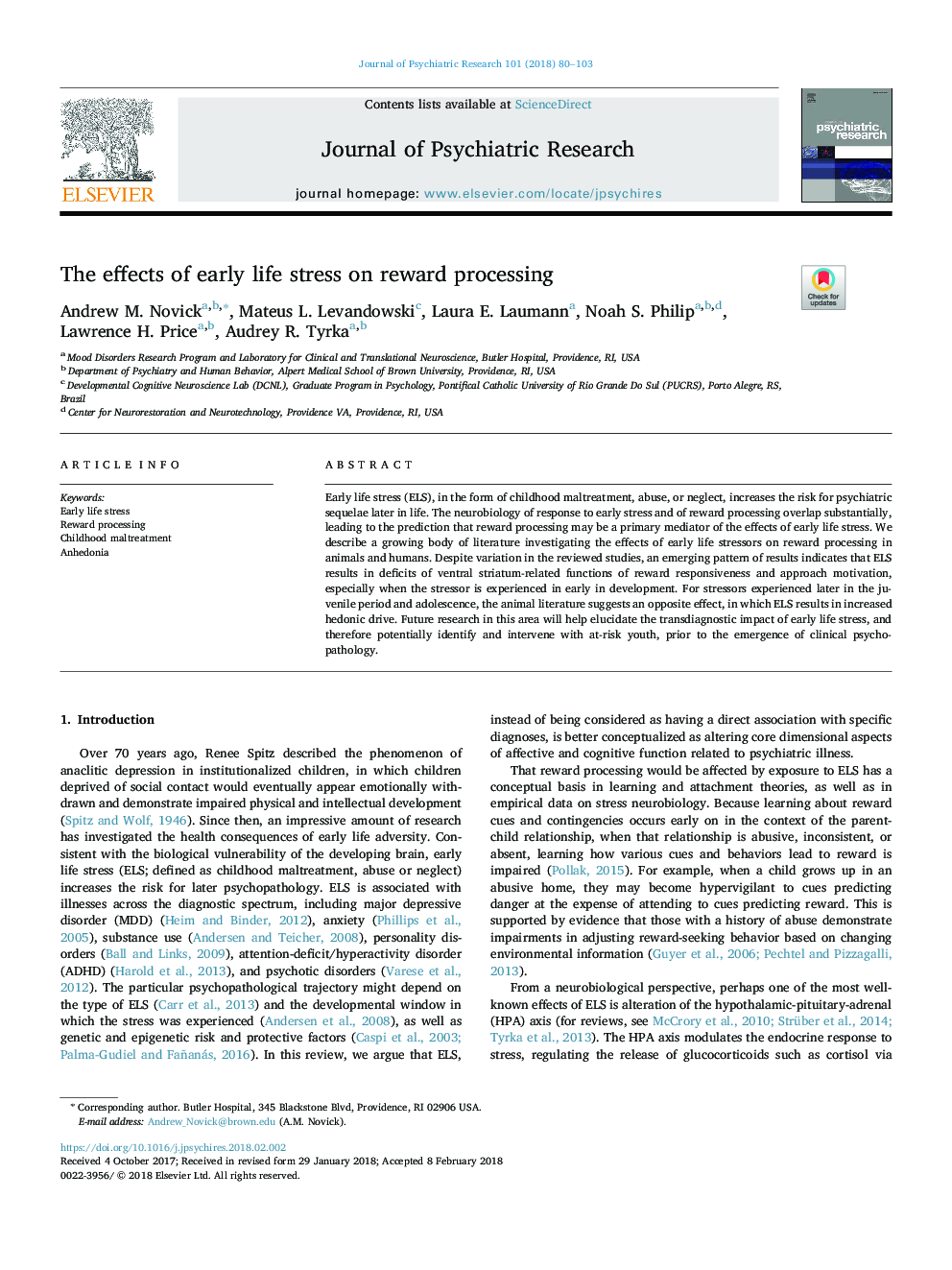| Article ID | Journal | Published Year | Pages | File Type |
|---|---|---|---|---|
| 6799595 | Journal of Psychiatric Research | 2018 | 24 Pages |
Abstract
Early life stress (ELS), in the form of childhood maltreatment, abuse, or neglect, increases the risk for psychiatric sequelae later in life. The neurobiology of response to early stress and of reward processing overlap substantially, leading to the prediction that reward processing may be a primary mediator of the effects of early life stress. We describe a growing body of literature investigating the effects of early life stressors on reward processing in animals and humans. Despite variation in the reviewed studies, an emerging pattern of results indicates that ELS results in deficits of ventral striatum-related functions of reward responsiveness and approach motivation, especially when the stressor is experienced in early in development. For stressors experienced later in the juvenile period and adolescence, the animal literature suggests an opposite effect, in which ELS results in increased hedonic drive. Future research in this area will help elucidate the transdiagnostic impact of early life stress, and therefore potentially identify and intervene with at-risk youth, prior to the emergence of clinical psychopathology.
Related Topics
Life Sciences
Neuroscience
Biological Psychiatry
Authors
Andrew M. Novick, Mateus L. Levandowski, Laura E. Laumann, Noah S. Philip, Lawrence H. Price, Audrey R. Tyrka,
